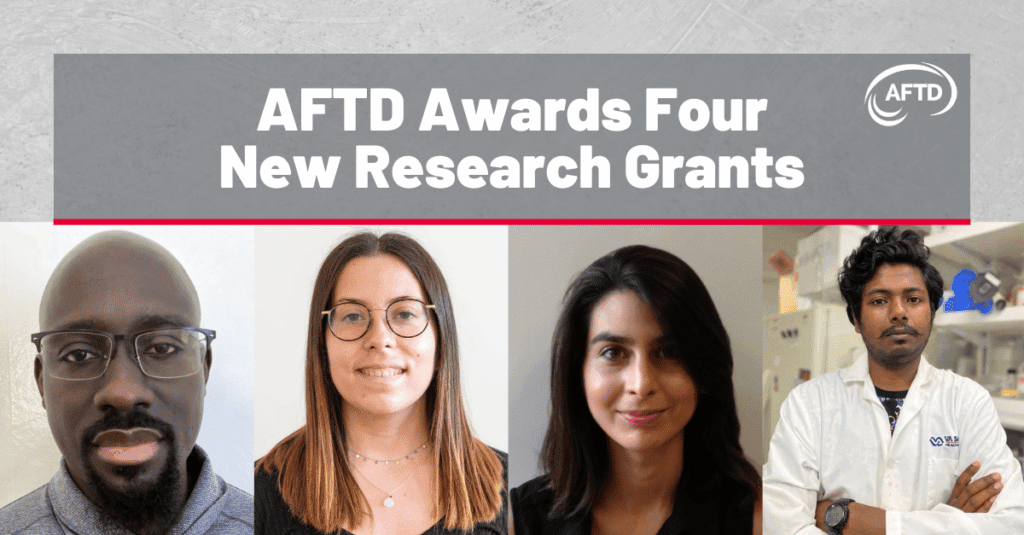AFTD Awards Four New Research Grants

Through its diverse grant programs, AFTD supports promising research to further our understanding of FTD, devise new diagnostic methods, and to one day develop a treatment for FTD.
With support from the Holloway Family Fund and the American Brain Foundation in collaboration with the American Academy of Neurology, AFTD awarded its first Clinical Research Training Scholarship to Indira Garcia Cordero, PhD, earlier this year. This scholarship continues AFTD’s tradition of supporting the next generation of clinician researchers conducting studies involving human participants, or working on translational research specifically designed to develop treatments or enhance diagnosis of neurologic disease.
A postdoctoral fellow at the Krembil Brain Institute in Toronto, Dr. Cordero will use brain imaging to compare brain function in people with progressive supranuclear palsy (PSP) or corticobasal syndrome (CBS) with an Alzheimer’s disease pathology to people with PSP and CBS that lack such a pathology. Dr. Cordero’s study will help provide context to the role of co-occurring pathologies in FTD.
Thanks to the generous support of the Holloway Family Fund, AFTD is also proud to announce the first three recipients of grant funding from the Holloway Postdoctoral Fellowship. The fellowship supports promising young researchers during a critical phase of their training to help inspire a long-standing commitment to FTD research.
Eric Anderson, PhD, a postdoctoral fellow at the University of Pittsburgh, was awarded a postdoctoral fellowship for his research analyzing two enzymes believed to play a key role in determining the effects of C9orf72 mutations. Because C9orf72 is a known genetic cause of ALS as well as FTD, Dr. Anderson’s fellowship is being co-founded with the ALS Association.
University of California, San Diego postdoctoral fellow Suborno Jati, PhD, received a fellowship for research focusing on chromogranin A (CgA), a protein that regulates communication between nerve cells and immune responses in the brain. CgA is found in tau protein clumps in roughly 40% of people with FTD.
Finally, Julia Faura Llorens, PhD, a postdoctoral fellow at Vlaams Instituut voor Biotechnologie in Belgium, was awarded a fellowship for her project to apply a novel technology – long-read transcriptomic sequencing – to the study of FTD. Dr. Llorens’s study seeks to identify abnormal protein synthesis templates associated with TDP-43.
By Category
Our Newsletters
Stay Informed
Sign up now and stay on top of the latest with our newsletter, event alerts, and more…
